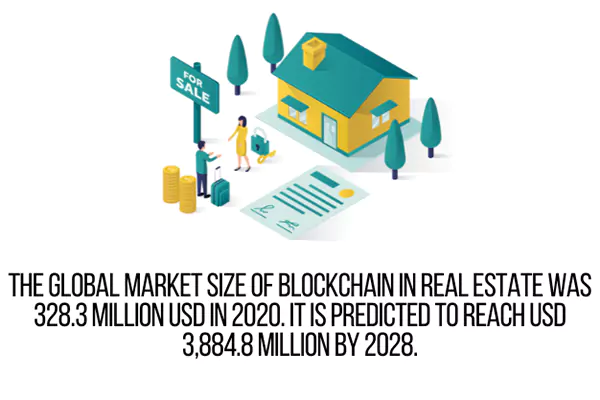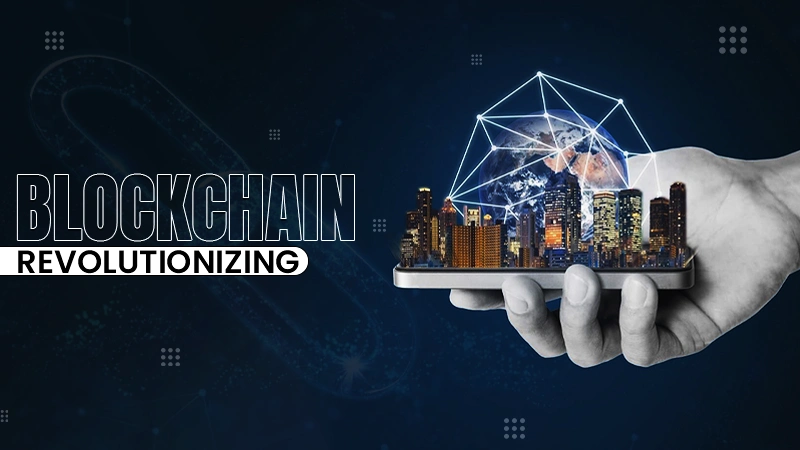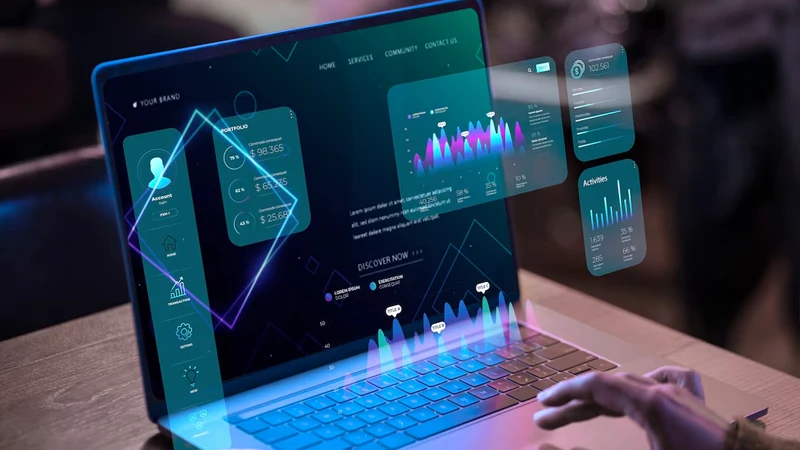10 Ways Blockchain Technology Revolutionizes Real Estate Transactions

You know, real estate is one of the most popular ways to invest money, but it comes with its own set of challenges.
Lack of transparency and oversight is one of them.
The public records of land titles are maintained locally and the lenders need to get in touch with the relevant authorities to verify each property.
So, how can we solve this issue while keeping costs low?
The answer to this lies in using blockchain technology for keeping records.
It is a new way of storing and keeping logs of transaction data that is pretty much tamper-proof.
So, How can Blockchain Technology revolutionize Real Estate transactions?
From improving security to simplifying processes, blockchain is changing the way we will be buying and selling our properties in the future.
DID YOU KNOW?
As of February 2023, more than 93 blockchain companies have started to focus on the real estate industry.
In this blog post, we will take a look at 10 ways blockchain is revolutionizing the real estate industry.
Blockchain Basics
Before you go looking for properties for sale in Dubai Marina, you need to learn the basics of blockchain and how it can help in real estate transactions.
Decentralization
Blockchain allows one to do real estate transactions without any central authority.
It allows direct P2P transactions to take place without any middlemen.
This means that buyers and sellers can interact directly, which makes the process of buying and selling even faster.
Transparency
Blockchain keeps track of all the transactions that take place using its technology.
And the transaction is only confirmed after it is verified and recorded at multiple locations.
This means that the transaction records are unchangeable and are visible to all people who want to take a look.
Security
The blockchain stores all its data by encrypting it.
Besides, it is on a tamper proof ledger system, which makes it very secure and makes it hard for anyone to manipulate the information recorded within the blockchain.
Enhancing Liquidity
We all know that real estate is not that good of an investment if you think about its liquidity.
Once you buy it, you’re stuck with it until a new buyer takes it off your hands, and looking for one can be hard.
Blockchain technology can change that by enhancing liquidity through fractional ownership and tokenization.
This simply means that investors can buy a fraction of your property without buying the whole thing.
With smart contracts and tokenization, owning a real estate investment is a thing of the past.
Streamlining Transactions
Using blockchain for real estate transactions also makes it a simpler process.
We can easily cut the middlemen, banks, and brokers out of the transaction loop.
This means that the buyer and the seller can directly transact with each other and besides, the transaction will be a lot faster too.
They can also use smart contracts and have a tamper proof way to enforce contracts without any paperwork.
Besides, smart contracts bring transparency to transactions by recording every detail securely on the blockchain, providing a clear transaction history that all parties can access.
Financing Innovations
Looking for a good financing option to buy properties was a hassle, but with blockchain, it is a thing of the past.
This technology allows users to get access to an alternative financing option like crowdfunding platforms that run on the blockchain.
These platforms use smart contracts to allow their users to own fractions of real estate as an investment.
Plus, by tokenizing real estate loans on the blockchain, trading becomes easier, and liquidity improves significantly.
Property Management Evolution
With its real-time accounting features, investors can keep accurate financial records, reduce any errors, and get the latest information about their assets instantly.
And, decentralized databases will make it easier for property managers to manage their properties.
By using smart contracts on the blockchain, zoning regulations can be automated, streamlining urban planning procedures efficiently.
Land and Property Registries
Hey, the one place where blockchain shines the most is keeping records.
So, by storing land and property registries on the blockchain, property registries can make sure that all their records are tamper-proof and free from any fraud.
Besides, with transparency in ownership, we can not only simplify the process but also minimize title disputes.
Impact on Investors and Tenants
One of the biggest impacts of blockchain on real estate transactions is in identity verification.
By using blockchain the processes become more secure and decentralized.
Digital identities stored on the blockchain can simplify the KYC process and help in reducing fraud.
Aside from all this, payment processes can also be simplified.
This ensures accurate and timely transactions and the use of smart contracts makes it easy to automate processes like rent payments and other fees.
Platforms and Marketplaces
You know, blockchain allows pretty much anyone to be able to safely invest in real estate transactions.
It simplifies the buying, selling, and transferring of properties.
Many new platforms and marketplaces are popping up that allow people to invest and own a fraction of a real estate property safely and securely.
They use smart contracts to facilitate a tamper proof way for property ownership that has never been seen before.

Closing Thoughts
From enhancing liquidity to changing how properties can be managed, blockchain technology has pretty much revolutionized real estate transactions.
New platforms and marketplaces are coming in to give investors a new way to take part in real estate.
Blockchain is the future of property ownership.
With all the security features, tamper-proof ledger systems, and smart contracts, property owners can now easily get into these transactions with peace of mind.
Frequently Asked Questions
Ans: With faster transactions, fractional ownership models, and smart contracts, blockchain can enhance liquidity in real estate transactions.
Ans: Less paperwork, lower risk for fraud, and faster paperwork processes, this makes blockchain much more desirable for real estate transactions.
Ans: By providing a decentralized platform for tracking ownership records, maintenance history, and lease agreements. This transparency fosters trust between landlords and tenants while facilitating seamless communication and automated rent payments.
Ans: Yes, blockchain improves land registries by creating tamper-proof records that eliminate the risk of fraudulent activities or disputes over ownership. Storing data on a distributed ledger accessible to all parties involved ensures accuracy and transparency in property transactions.
Ans: Platforms leverage blockchain to create digital marketplaces where buyers, sellers, investors, and tenants can interact directly without middlemen. These platforms offer enhanced security features like identity verification protocols while providing access to a broader range of properties globally.







